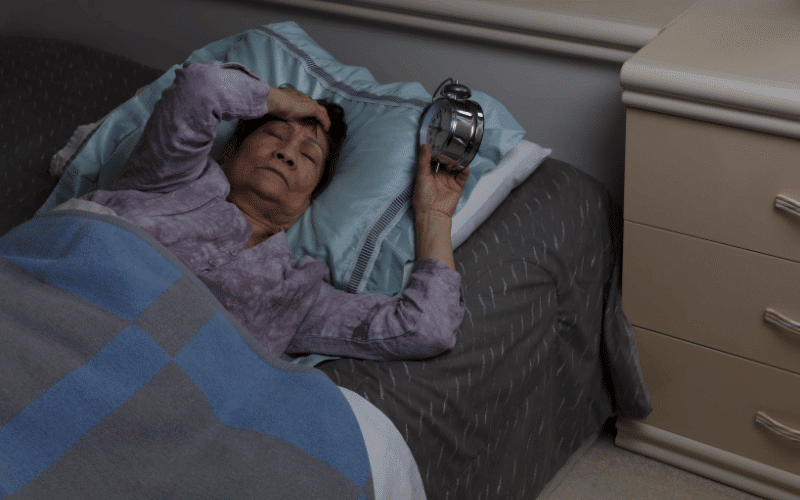Symptom 3. Unquiet Slumber: The Sleepless Nights of Akathisia

Akathisia isn’t just a daytime tormentor; its influence extends into the night, casting a wide shadow over peaceful sleep. Insomnia, or unquiet slumber, is a common symptom of akathisia. But what exactly does this nighttime battle entail for those grappling with this condition?
A person with akathisia could find themselves wrestling with elusive sleep, despite overwhelming exhaustion. The internal restlessness, the unyielding discomfort, the unending urge to move – all these elements conspire against tranquil slumber. It’s a paradoxical state where the body yearns for rest, but the mind is held hostage by relentless restlessness.
Sleep deprivation isn’t just about tossing and turning through the night. It drapes the following day in a fog of fatigue, making even simple tasks seem daunting. A lack of restorative sleep can also affect cognitive functions, making it difficult to concentrate, remember, or make decisions.
Beyond the direct consequences of sleeplessness, there are also the indirect effects to consider. Chronic sleep deprivation can impact overall health, increasing the risk of conditions like heart disease, diabetes, and obesity. It also takes a toll on emotional health, amplifying feelings of anxiety, depression, and stress.
Managing this unquiet slumber often requires a multifaceted approach. Good sleep hygiene, which includes maintaining a regular sleep schedule, creating a calm sleep environment, and avoiding stimulants like caffeine close to bedtime, can be helpful. Regular physical activity and stress management techniques can also contribute to better sleep. (3)